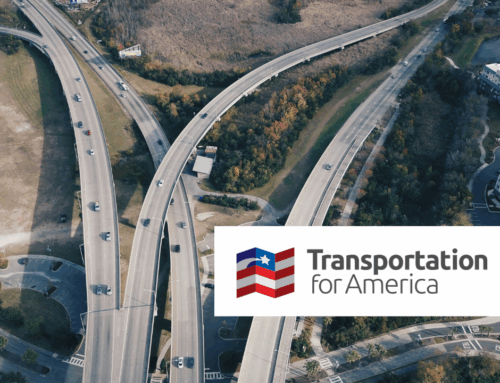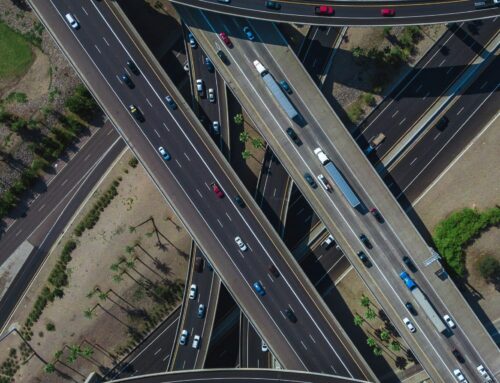If you are looking for a looming problem that illustrates Congress’ trouble governing our country, look no further than the Highway Trust Fund. Unless lawmakers can find new money or spending cuts, the principal funding source for maintaining our roads and bridges (among other things) will soon be running on fumes. Lawmakers’ failure to bring transportation revenue in line with spending, despite many opportunities to do so, has created yet another budget crisis.
On Friday, the Congressional Budget Office said the fund will need about $8.1 billion to meet its anticipated obligations through the end of the year. The House and Senate are not in session, but staffers from the House Ways and Means Committee and Senate Finance Committee are reportedly meeting this week to come up with a way to plug that hole.
This is not a surprising problem. In fact, it has been staring Congress in the face for years. The trust fund is fueled by the gasoline tax. Every driver who purchases fuel pays an excise tax of 18.4 cents per gallon of gasoline or 24.4 cents per gallon of diesel. But it’s been more than 20 years since Congress increased the tax and inflation has greatly diminished its purchasing power. And while the federal government spends about $53 billion on highway and transit projects a year, the gasoline tax only generates about $35 billion. Since 2008, Congress has transferred a total of $54 billion from the nation’s general revenues to keep the Highway Trust Fund solvent. At the same time, federal law requires automakers to double fuel economy by 2025, which could push proceeds from a gas tax even lower. At the current rate of spending, the trust fund will be $172 billion in the red by 2024.
One problem with the trust fund is that it is an odd budgetary bird, as it is both mandatory and discretionary. The budget authority for trust fund programs is classified as mandatory (set outside the annual spending process), while the actual outlays to funded programs are considered discretionary. This makes the funding exempt from both discretionary spending caps (legally applied to budget authority) and the reductions required of mandatory programs (applied to outlays). The Congressional Budget Office says this split budgetary treatment makes it more difficult to understand the implications of transportation legislation, leading to poor spending choices. The CBO says it “facilitate[s] the spending of more money from the trust fund than there are dedicated revenues to support such spending.”
Challenging as this setup is, Congress should be able to figure it out. And yet, in 2012, Congress passed MAP-21, a two year transportation bill that “paid” for itself with smoke and mirrors. Earlier this spring, the Senate Environment and Public Works committee approved a highway bill that spends $265 billion, while the trust fund is only projected to raise $204 billion. So, even the committee’s own projections anticipate a shortfall of more than $60 billion.
If ever there was a problem that Congress should be able to fix, it is how to pay for transportation investments. Investments in roads and transit are popular and visible in almost every Congressional district, and even economic conservatives see a benefit to government spending on infrastructure. The arrival of a surge of tea party conservatives did not decrease demand for transportation spending in the way it did in other areas of the government. But for all the bipartisan agreement on transportation spending, there has been little agreement on revenues.
Now that we are facing imminent Highway Trust Fund insolvency, ideas for where to find new money are being promoted from all corners. The White House has said we should end an assortment of corporate tax breaks. House Speaker John Boehner, R-Ohio, suggested nixing Saturday postal delivery. Senate Majority Leader Harry Reid, D-Nev., floated the idea of a tax holiday for companies to bring home their foreign earnings. Sens. Bob Corker, R-Tenn., and Chris Murphy, D-Conn., proposed perhaps the only long-term solution of raising the fuel tax by 12 cents and indexing it to inflation (and extending a passel of wide ranging tax breaks known as extenders at the same time). The good news is that they are all finally talking about revenues and offsets.
Here are a few things Congress should keep in mind if and when it crafts a long-term solution for the Highway Trust Fund:
- It should be completely self-financing: Whether Congress opts to rely on the current gasoline tax or switches to an alternative funding source or a hybrid of both, spending from the trust fund should not exceed incoming revenues.
- User pays/user benefits principle should be preserved: A primary advantage of the current funding system is that, generally, a driver who uses the roads more pays more in gasoline tax, which could be strengthened further with a direct tax on miles driven.
- Eliminate waste, prioritize spending: The trust fund faces myriad problems, including a lack of spending prioritization. Congress should incentivize the maintenance of existing infrastructure and penalize states that do not keep their roads and bridges at a minimum level of good repair.
- Allow revenues from additional sources: Under existing federal policy, states are not permitted to toll existing highway miles, though many of our nation’s interstates have reached their 50-year life expectancy.
The Department of Transportation has a helpful “trust fund ticker” counting down to insolvency, at which point transportation projects that depend on federal money would get by on a hand to mouth cash-in, cash-out basis, sometime in August. That probably won’t happen, as Congress will likely find some temporary fix to keep the fund solvent until next year at least. At which point, it will go through the same exercise again unless someone can find the political courage to reform the underlying funding system that actually pays for the roads and bridges we use. Stay alert, bumps ahead.










